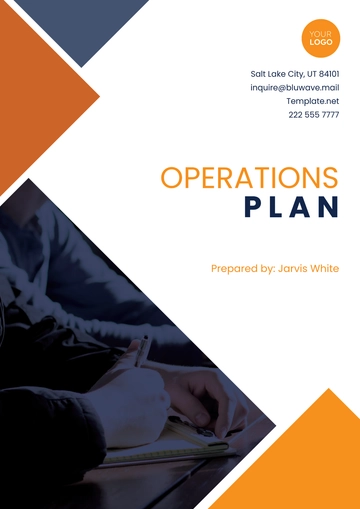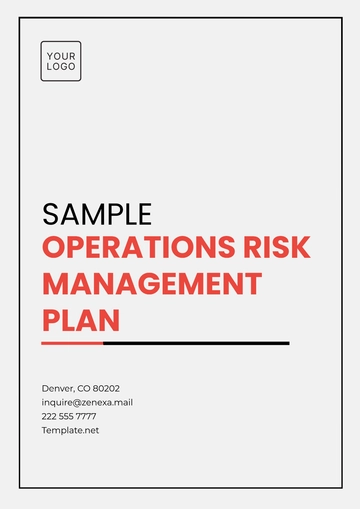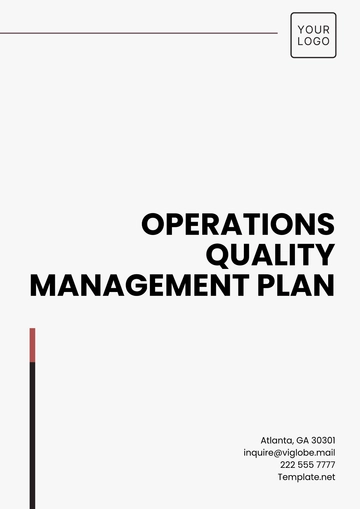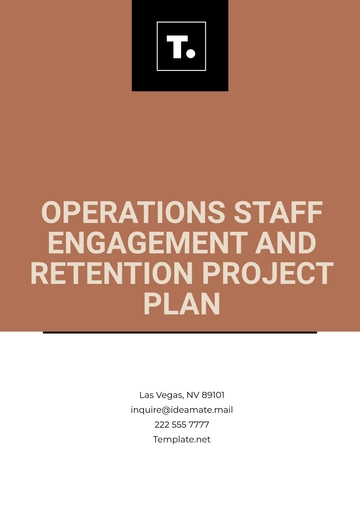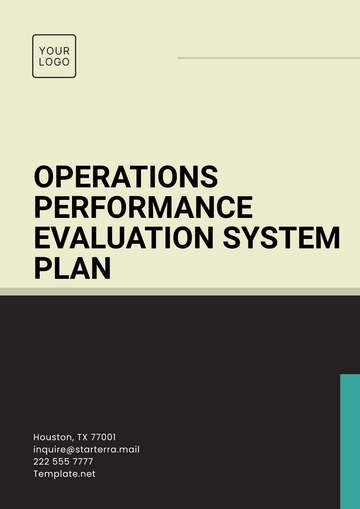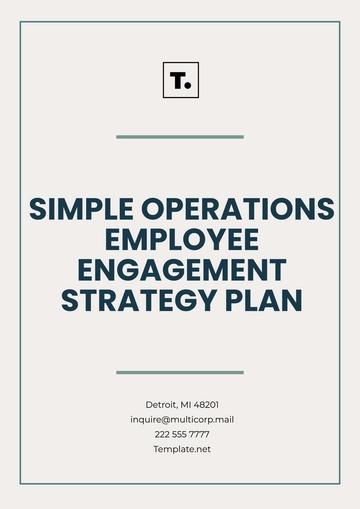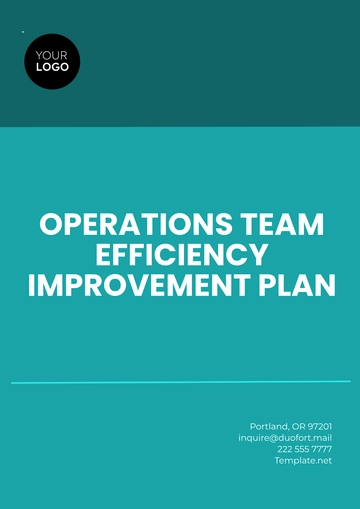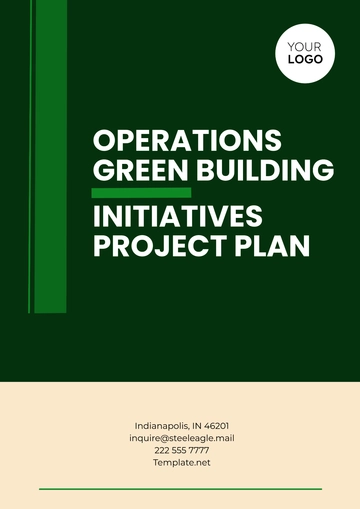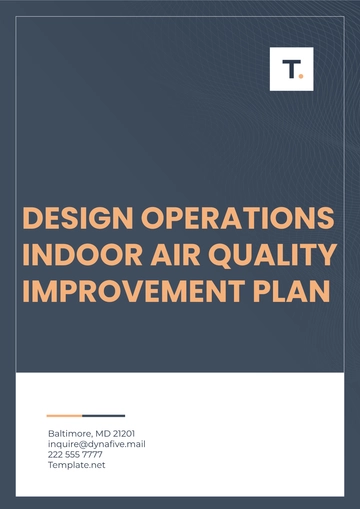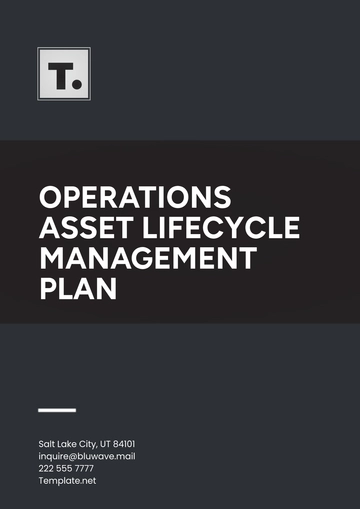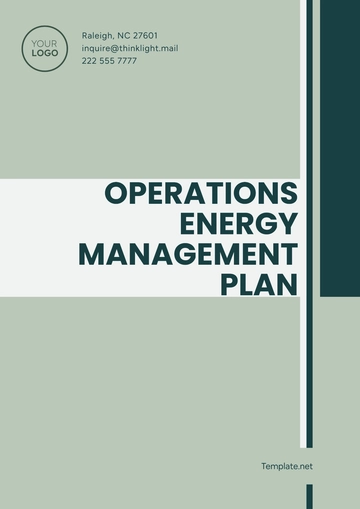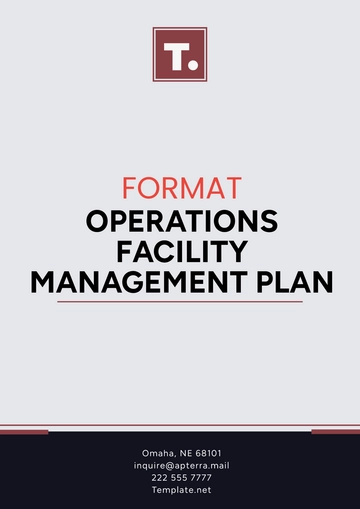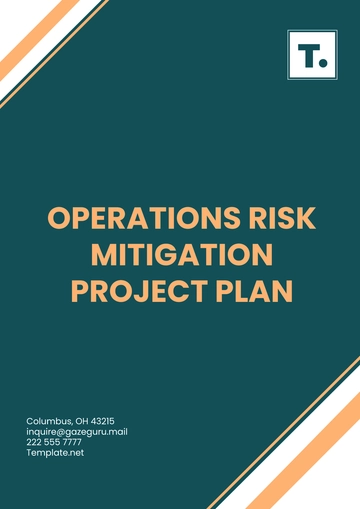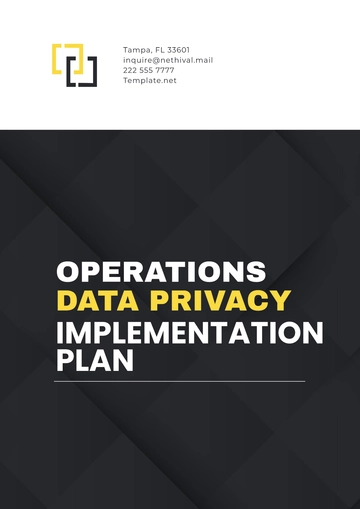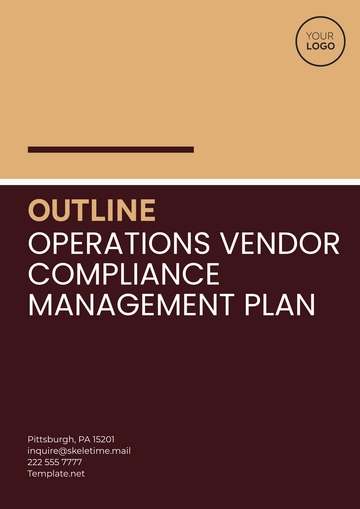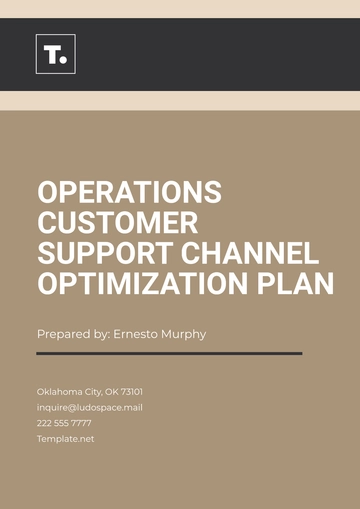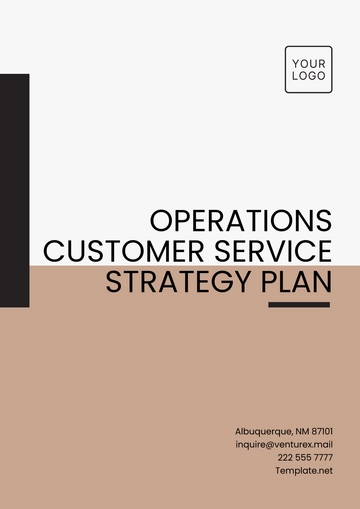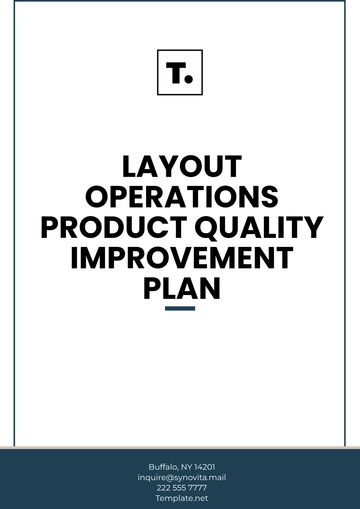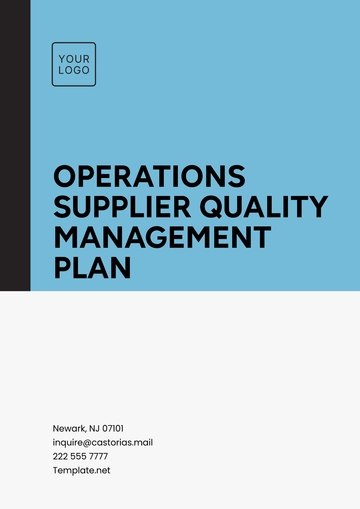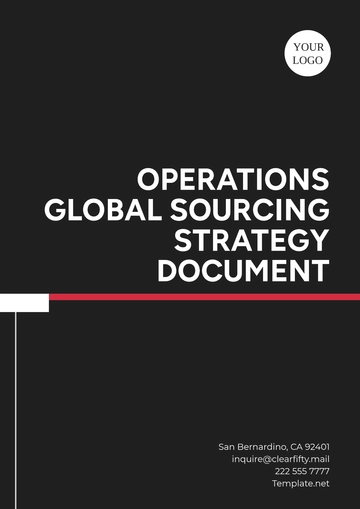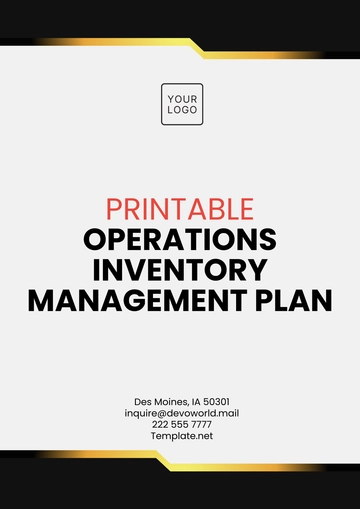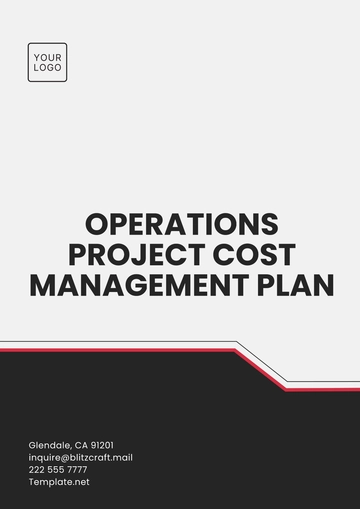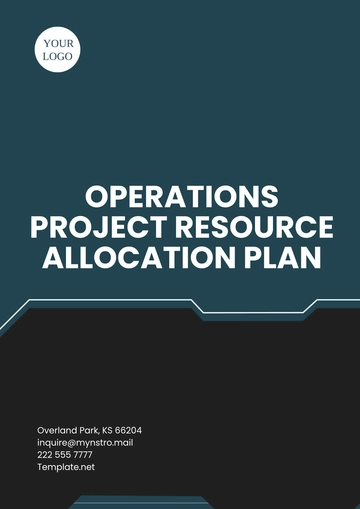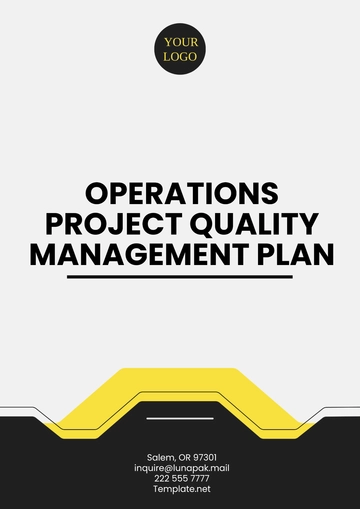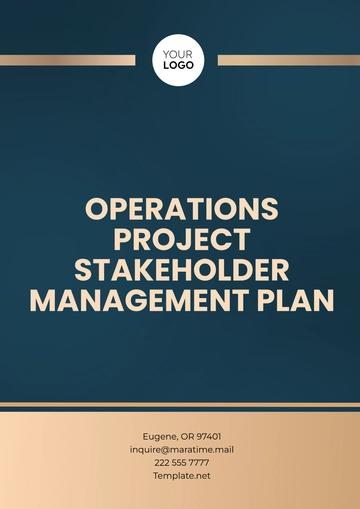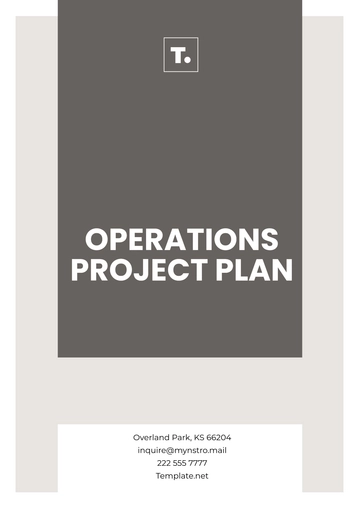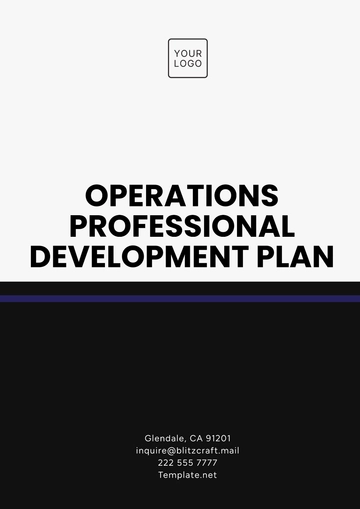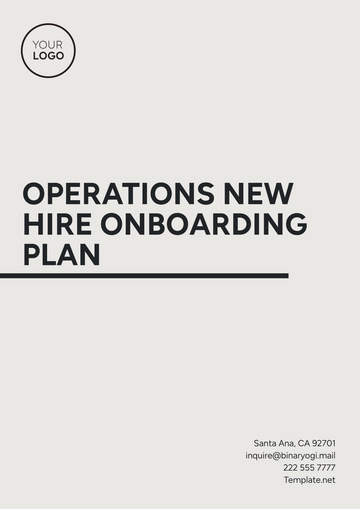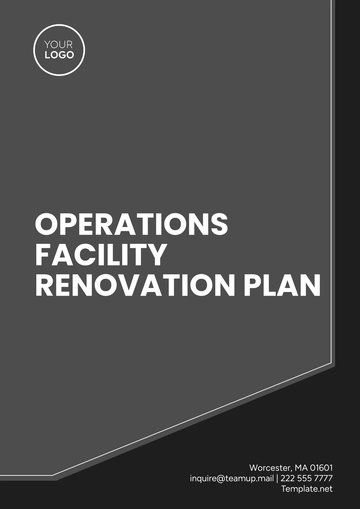Free Travel Agency Operations Plan
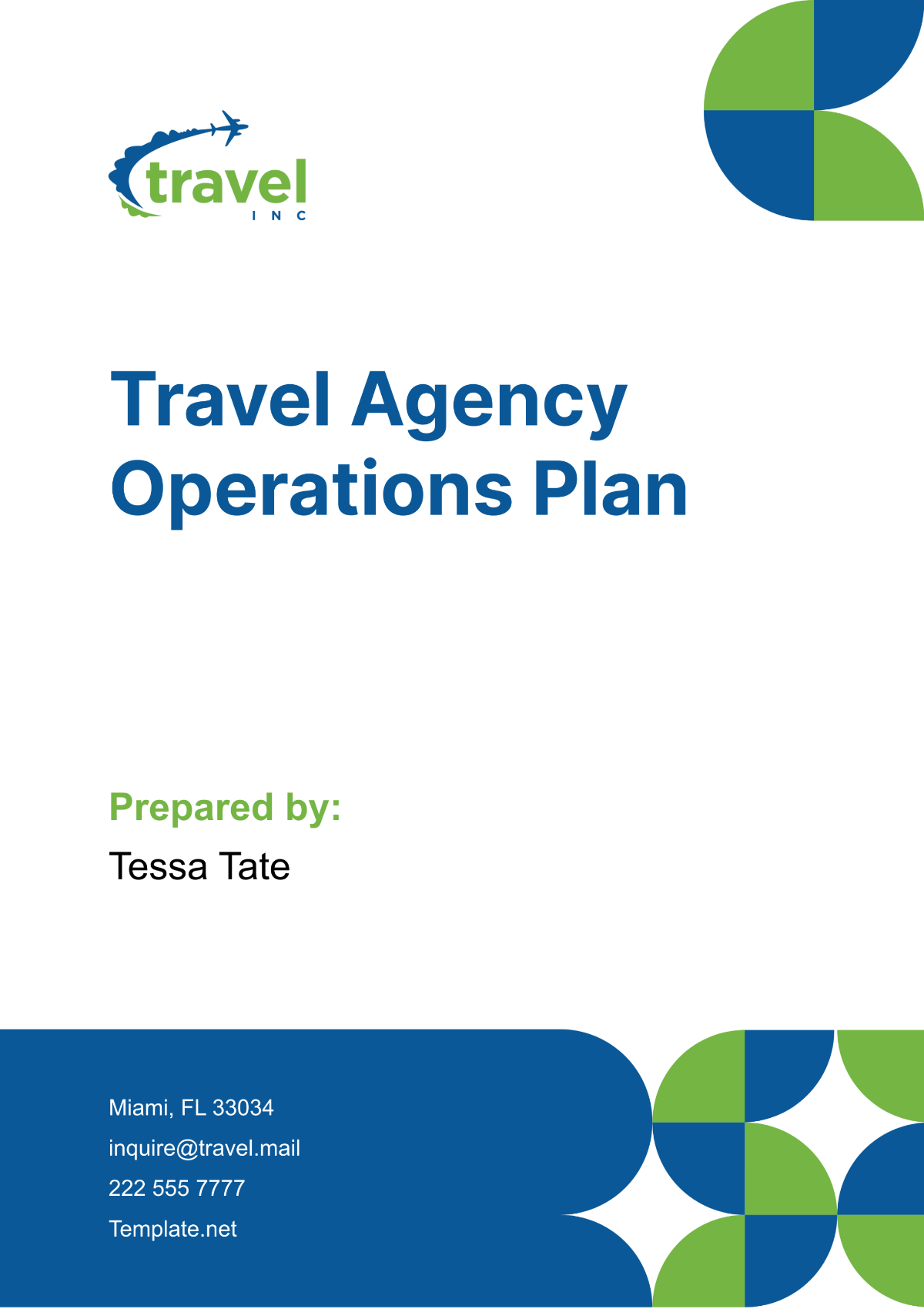
I. Executive Summary:
[Your Company Name] is a dynamic travel agency committed to providing exceptional travel experiences to our clients. This Operations Plan outlines our strategies and procedures for efficiently managing day-to-day operations, ensuring customer satisfaction, and driving business growth.
II. Business Overview:
[Your Company Name] was founded in [Year] with the vision of becoming a leading provider of comprehensive travel services. We specialize in curating personalized travel experiences, offering a wide range of services including air ticketing, hotel reservations, tour packages, transportation, visa assistance, travel insurance, and more. Our team of experienced travel professionals is dedicated to delivering high-quality services tailored to meet the unique needs and preferences of each client.
III. Market Analysis:
[Your Company Name] operates in a competitive but growing market. The travel industry is witnessing increasing demand for personalized and experiential travel services, driven by rising disposable incomes, changing consumer preferences, and technological advancements. Our target market includes leisure travelers, corporate clients, families, honeymooners, and adventure seekers. We continuously monitor market trends, customer feedback, and competitor strategies to identify opportunities and adapt our offerings accordingly.
IV. Services Offered:
[Your Company Name] offers a comprehensive range of travel services designed to cater to the diverse needs of our clients. Our services include:
Service Category | Description |
|---|---|
Air Ticketing | Booking domestic and international flights |
Accommodation | Reserving hotels, resorts, villas, and apartments |
Tours and Activities | Organizing sightseeing tours, excursions, and activities |
Transportation | Arranging ground transportation such as transfers, car rentals, and chauffeur services |
Visa Assistance | Assisting clients with visa applications and documentation |
Travel Insurance | Providing travel insurance coverage for emergencies and unforeseen events |
V. Marketing and Sales Strategy:
[Your Company Name] employs a multi-channel marketing and sales strategy to reach and engage with our target audience effectively. Our strategies include:
Online Presence: Maintaining a user-friendly website with easy navigation, engaging content, and online booking capabilities.
Social Media Marketing: Leveraging platforms like Facebook, Instagram, and Twitter to showcase travel experiences, promotions, and engage with followers.
Email Marketing: Sending personalized newsletters, promotional offers, and travel updates to our subscriber base.
Partnerships: Collaborating with airlines, hotels, tourism boards, and other travel-related businesses to offer exclusive deals and packages.
Referral Programs: Encouraging satisfied customers to refer their friends and family through incentives and rewards.
VI. Operational Procedures:
Booking Procedures:
Customer Inquiry: Responding promptly to customer inquiries via phone, email, or online chat.
Preferences Capture: Gathering detailed information about customer preferences, budget, travel dates, and destinations.
Availability Check: Checking availability of flights, accommodations, and other services using reservation systems.
Options Presentation: Providing customers with multiple options and itineraries based on their preferences.
Confirmation: Confirming bookings and sending detailed itineraries to customers for review and approval.
Reservation Management:
Supplier Coordination: Coordinating with airlines, hotels, and tour operators to secure reservations and ensure accuracy.
Reservation Updates: Managing changes to reservations, including date changes, cancellations, and amendments.
Documentation: Generating and managing booking confirmations, invoices, and travel documents for customers.
Payment Processing:
Payment Collection: Collecting payments from customers via various channels, including credit/debit cards, bank transfers, and online payment gateways.
Invoicing: Generating and sending invoices to customers for services booked.
Deposit Management: Managing deposits and advance payments in accordance with company policies.
Customer Communication:
Timely Updates: Keeping customers informed about the status of their bookings, any changes, or updates to their travel arrangements.
Communication Channels: Offering multiple communication channels for customer inquiries, including phone, email, and live chat support.
Customer Support: Providing prompt and courteous assistance to customers for any inquiries or issues they may encounter during their travels.
Documentation and Paperwork:
Document Preparation: Generating and organizing travel documents such as e-tickets, hotel vouchers, tour itineraries, and visa applications.
Accuracy Checks: Ensuring accuracy and completeness of travel documents before delivering them to customers.
Timely Delivery: Sending travel documents to customers well in advance of their departure dates to allow for review and preparation.
Technology Integration:
Reservation Systems: Utilizing advanced reservation systems to manage bookings, check availability, and communicate with suppliers.
Online Booking Platform: Offering a user-friendly online booking platform for customers to browse, book, and manage their travel arrangements conveniently from anywhere, at any time.
Communication Tools: Using email, instant messaging, and CRM software to communicate with customers and track interactions.
Inventory Management:
Inventory Monitoring: Monitoring availability of flights, hotel rooms, tour packages, and transportation services in real-time.
Inventory Optimization: Optimizing inventory utilization to maximize revenue and minimize wastage.
Supplier Relationships: Building strong relationships with suppliers to ensure preferential access to inventory and favorable pricing.
Performance Monitoring:
KPI Tracking: Monitoring key performance indicators such as booking conversion rates, customer satisfaction scores, and revenue per booking.
Performance Analysis: Analyzing performance data to identify trends, strengths, weaknesses, and areas for improvement.
VII. Supplier Relationships:
[Your Company Name] maintains strategic partnerships with a wide network of suppliers including airlines, hotels, tour operators, transportation companies, and travel insurance providers. These relationships enable us to offer competitive pricing, access exclusive deals, and provide our clients with a wide range of options to choose from. We prioritize suppliers who share our commitment to quality, reliability, and customer satisfaction, and continuously evaluate and strengthen these partnerships to ensure mutual success.
VIII. Technology Utilization:
[Your Company Name] leverages cutting-edge technology solutions to streamline operations, enhance efficiency, and deliver a seamless booking experience for our clients. Our technology stack includes:
Reservation Systems: Advanced reservation systems that enable us to check availability, book flights, hotels, and other services, and manage reservations efficiently.
Online Booking Platform: A user-friendly online booking platform that allows customers to browse, book, and manage their travel arrangements conveniently from anywhere, at any time.
Communication Tools: Email, instant messaging, and CRM software that facilitate communication with customers, suppliers, and team members, ensuring timely and effective coordination.
Data Analytics: Analytics tools that enable us to track and analyze key performance indicators, customer preferences, and market trends, informing our decision-making and strategy development.
IX. Financial Management:
[Your Company Name] is committed to sound financial management practices to ensure long-term sustainability and profitability. Our financial management strategies include:
Budgeting: Developing and maintaining comprehensive budgets that allocate resources effectively and prioritize investments in key areas such as marketing, technology, and staff training.
Pricing Strategy: Implementing competitive pricing strategies that balance profitability with market competitiveness and customer value.
Cost Control: Implementing cost control measures to minimize expenses while maintaining service quality and customer satisfaction.
Financial Reporting: Generating regular financial reports that provide insights into revenue, expenses, profitability, and cash flow, enabling informed decision-making and performance monitoring.
X. Regulatory Compliance:
[Your Company Name] is committed to compliance with all relevant laws, regulations, and industry standards governing the travel industry. We maintain all necessary licenses, permits, and certifications required to operate legally and ethically. Our compliance efforts include the following:
Licensing: Obtaining and renewing licenses and permits from regulatory authorities as required to operate as a travel agency.
Data Protection: Implementing robust data protection measures to ensure the confidentiality, integrity, and security of customer information in compliance with data protection laws and regulations.
Consumer Protection: Adhering to consumer protection laws and regulations, including those related to transparency, fairness, and accountability in pricing, advertising, and service delivery.
XI. Customer Service:
[Your Company Name] is dedicated to providing exceptional customer service at every stage of the travel journey. Our customer service philosophy is based on:
Personalization: Understanding and anticipating the unique needs and preferences of each customer, and tailoring our services accordingly.
Responsiveness: Responding promptly and courteously to customer inquiries, requests, and issues, and providing timely updates on the status of their bookings.
Empathy: Showing empathy and understanding towards customers' concerns, and proactively addressing any issues or challenges they may encounter during their travels.
XII. Risk Management:
[Your Company Name] recognizes the importance of proactive risk management to mitigate potential threats and disruptions to our business and our clients' travel experiences. Our risk management strategies include:
Risk Assessment: Identifying and assessing potential risks and vulnerabilities that may impact our operations or our clients' travel plans, including natural disasters, political unrest, health emergencies, and technological failures.
Contingency Planning: Developing and implementing contingency plans and emergency protocols to respond effectively to unexpected events or disruptions, minimize their impact, and ensure the safety and well-being of our clients.
Insurance Coverage: Maintaining appropriate insurance coverage, including professional liability insurance, travel insurance, and business interruption insurance, to mitigate financial risks and liabilities associated with our operations.
XIII. Staff Training and Development:
[Your Company Name] invests in the continuous training and development of our staff to ensure they have the knowledge, skills, and resources to deliver exceptional service to our clients. Our staff training and development initiatives include:
Product Knowledge: Providing comprehensive training on our products and services, including destination information, travel packages, and supplier offerings.
Customer Service Skills: Equipping our staff with the interpersonal and communication skills needed to effectively engage with customers, address their needs, and resolve any issues or concerns.
Technology Training: Offering training on the use of technology tools and systems, including reservation systems, online booking platforms, communication tools, and CRM software.
Professional Development: Supporting staff members' professional growth and career advancement through ongoing training, mentorship, and opportunities for learning and development.
XIV. Conclusion:
In conclusion, [Your Company Name] is committed to excellence in every aspect of our operations, from customer service to financial management to risk mitigation. By adhering to the strategies and procedures outlined in this Operations Plan, we are confident in our ability to deliver outstanding travel experiences that exceed our clients' expectations and drive long-term success and growth for our business. Thank you for entrusting us with your travel needs. We look forward to serving you and helping you create unforgettable memories that last a lifetime.
- 100% Customizable, free editor
- Access 1 Million+ Templates, photo’s & graphics
- Download or share as a template
- Click and replace photos, graphics, text, backgrounds
- Resize, crop, AI write & more
- Access advanced editor
Ensure smooth operations with Template.net's Travel Agency Operations Plan Template. Editable in our AI Editor Tool, this customizable template provides a structured format for outlining operational processes, workflows, and responsibilities within your travel agency. Enhance efficiency, improve resource allocation, and achieve business objectives with the use of our professionally crafted template!
You may also like
- Finance Plan
- Construction Plan
- Sales Plan
- Development Plan
- Career Plan
- Budget Plan
- HR Plan
- Education Plan
- Transition Plan
- Work Plan
- Training Plan
- Communication Plan
- Operation Plan
- Health And Safety Plan
- Strategy Plan
- Professional Development Plan
- Advertising Plan
- Risk Management Plan
- Restaurant Plan
- School Plan
- Nursing Home Patient Care Plan
- Nursing Care Plan
- Plan Event
- Startup Plan
- Social Media Plan
- Staffing Plan
- Annual Plan
- Content Plan
- Payment Plan
- Implementation Plan
- Hotel Plan
- Workout Plan
- Accounting Plan
- Campaign Plan
- Essay Plan
- 30 60 90 Day Plan
- Research Plan
- Recruitment Plan
- 90 Day Plan
- Quarterly Plan
- Emergency Plan
- 5 Year Plan
- Gym Plan
- Personal Plan
- IT and Software Plan
- Treatment Plan
- Real Estate Plan
- Law Firm Plan
- Healthcare Plan
- Improvement Plan
- Media Plan
- 5 Year Business Plan
- Learning Plan
- Marketing Campaign Plan
- Travel Agency Plan
- Cleaning Services Plan
- Interior Design Plan
- Performance Plan
- PR Plan
- Birth Plan
- Life Plan
- SEO Plan
- Disaster Recovery Plan
- Continuity Plan
- Launch Plan
- Legal Plan
- Behavior Plan
- Performance Improvement Plan
- Salon Plan
- Security Plan
- Security Management Plan
- Employee Development Plan
- Quality Plan
- Service Improvement Plan
- Growth Plan
- Incident Response Plan
- Basketball Plan
- Emergency Action Plan
- Product Launch Plan
- Spa Plan
- Employee Training Plan
- Data Analysis Plan
- Employee Action Plan
- Territory Plan
- Audit Plan
- Classroom Plan
- Activity Plan
- Parenting Plan
- Care Plan
- Project Execution Plan
- Exercise Plan
- Internship Plan
- Software Development Plan
- Continuous Improvement Plan
- Leave Plan
- 90 Day Sales Plan
- Advertising Agency Plan
- Employee Transition Plan
- Smart Action Plan
- Workplace Safety Plan
- Behavior Change Plan
- Contingency Plan
- Continuity of Operations Plan
- Health Plan
- Quality Control Plan
- Self Plan
- Sports Development Plan
- Change Management Plan
- Ecommerce Plan
- Personal Financial Plan
- Process Improvement Plan
- 30-60-90 Day Sales Plan
- Crisis Management Plan
- Engagement Plan
- Execution Plan
- Pandemic Plan
- Quality Assurance Plan
- Service Continuity Plan
- Agile Project Plan
- Fundraising Plan
- Job Transition Plan
- Asset Maintenance Plan
- Maintenance Plan
- Software Test Plan
- Staff Training and Development Plan
- 3 Year Plan
- Brand Activation Plan
- Release Plan
- Resource Plan
- Risk Mitigation Plan
- Teacher Plan
- 30 60 90 Day Plan for New Manager
- Food Safety Plan
- Food Truck Plan
- Hiring Plan
- Quality Management Plan
- Wellness Plan
- Behavior Intervention Plan
- Bonus Plan
- Investment Plan
- Maternity Leave Plan
- Pandemic Response Plan
- Succession Planning
- Coaching Plan
- Configuration Management Plan
- Remote Work Plan
- Self Care Plan
- Teaching Plan
- 100-Day Plan
- HACCP Plan
- Student Plan
- Sustainability Plan
- 30 60 90 Day Plan for Interview
- Access Plan
- Site Specific Safety Plan
